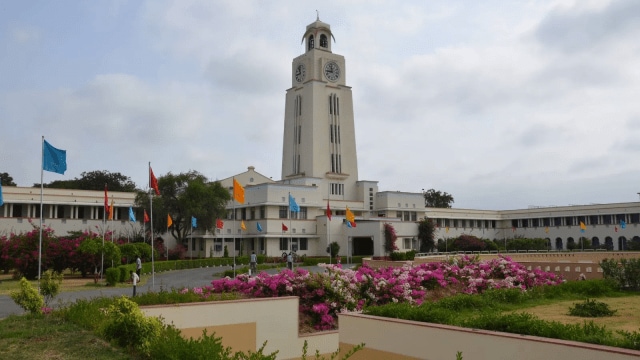© IE Online Media Services Pvt Ltd
Latest Comment
Post Comment
Read Comments
 BITS Pilani has announced addition of two new UG and PG courses. (Representative image/ Source: BITS Pilani)
BITS Pilani has announced addition of two new UG and PG courses. (Representative image/ Source: BITS Pilani)BITS Pilani, Rajasthan on March 19 introduced major curriculum updates, unveiling new undergraduate and postgraduate programs designed to meet industry demands and promote interdisciplinary learning. The additions include an MSc in Semiconductor and Nanoscience, a BE in Environmental and Sustainability Engineering—open to students with a PCB background—and a 2+2 International Collaborative Programme.
Commenting on these curriculum changes, BITS Pilani Vice-Chancellor Prof Ramgopal Rao stated that the rapid evolution of science and technology necessitates updates in higher education. He emphasised that the new programs align with industry trends and interdisciplinary approaches.
 BITS Pilani has introduced an M.Sc. in Semiconductor and Nanoscience, designed to meet the increasing demand for skilled professionals in semiconductor technology and nanofabrication. The program integrates concepts from physics, chemistry, and biotechnology, providing a strong theoretical foundation alongside practical training. The course is aligned with national initiatives such as the India Semiconductor Mission and the National Quantum Mission, aiming to equip graduates for careers in research institutions, semiconductor industries, and technology startups.
BITS Pilani has introduced an M.Sc. in Semiconductor and Nanoscience, designed to meet the increasing demand for skilled professionals in semiconductor technology and nanofabrication. The program integrates concepts from physics, chemistry, and biotechnology, providing a strong theoretical foundation alongside practical training. The course is aligned with national initiatives such as the India Semiconductor Mission and the National Quantum Mission, aiming to equip graduates for careers in research institutions, semiconductor industries, and technology startups.
A new B.E. program in Environmental and Sustainability Engineering has also been launched, covering key areas such as renewable energy, pollution control, climate change mitigation, and infrastructure sustainability. The program is open to students from both PCM (Physics, Chemistry, Mathematics) and PCB (Physics, Chemistry, Biology) backgrounds. It includes hands-on training in Geographic Information Systems (GIS), remote sensing, and environmental data analysis. Graduates will be prepared for careers in environmental policy, green energy sectors, and corporate sustainability roles.
Notably, as part of its curriculum overhaul, BITS Pilani has expanded access to environmental sciences and engineering courses for PCB students. This move allows students from a non-mathematics background to explore engineering fields related to sustainability, broadening academic and career opportunities.
BITS Pilani has also introduced a 2+2 International Collaborative Programme, allowing students to earn two degrees—one from BITS Pilani and another from an international partner institution. Participating universities include RMIT University Melbourne (Australia), SUNY Buffalo (USA), Iowa State University of Science and Technology (USA), and Rensselaer Polytechnic Institute (USA). This initiative aims to provide students with global exposure and academic flexibility.




